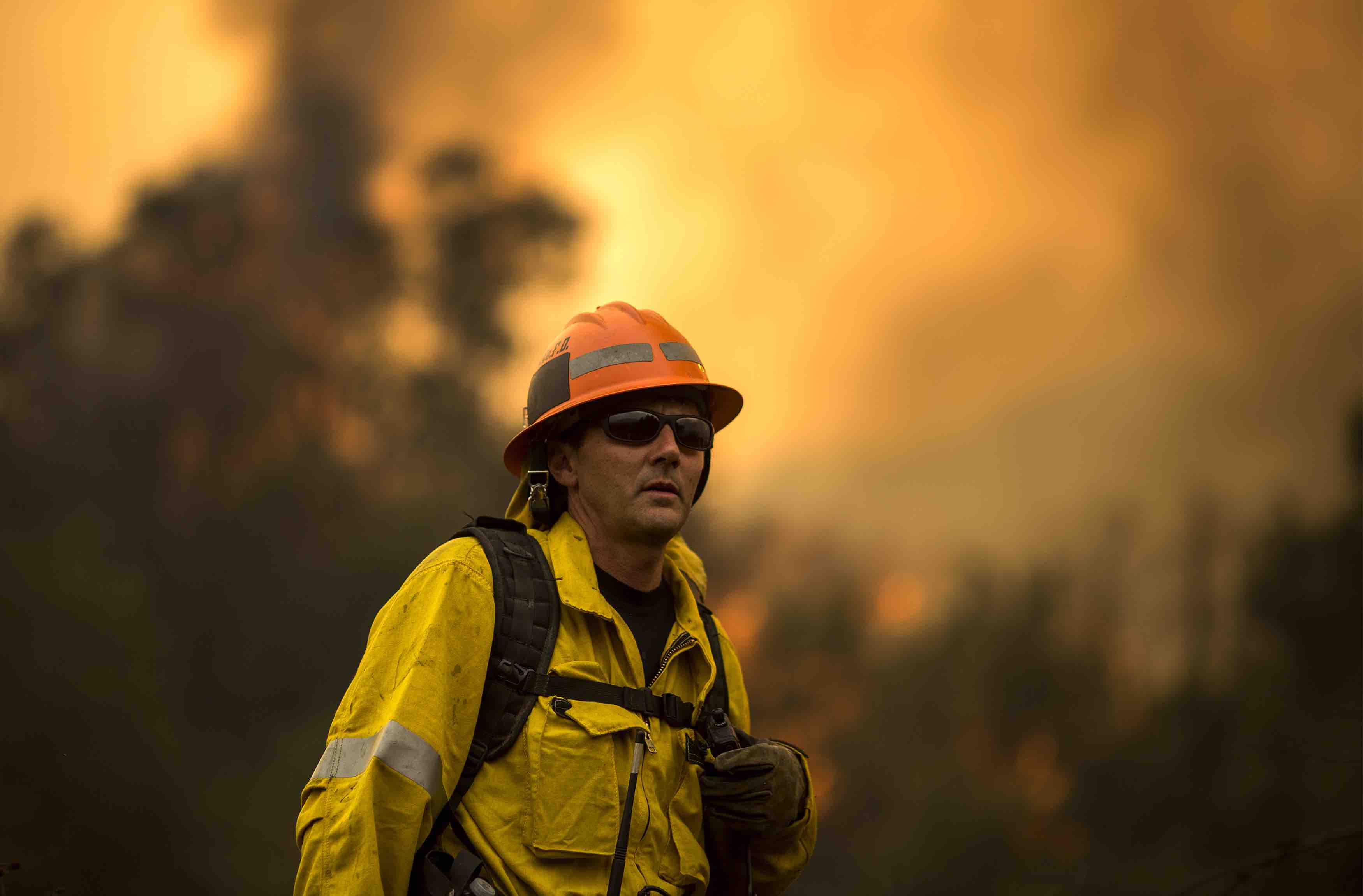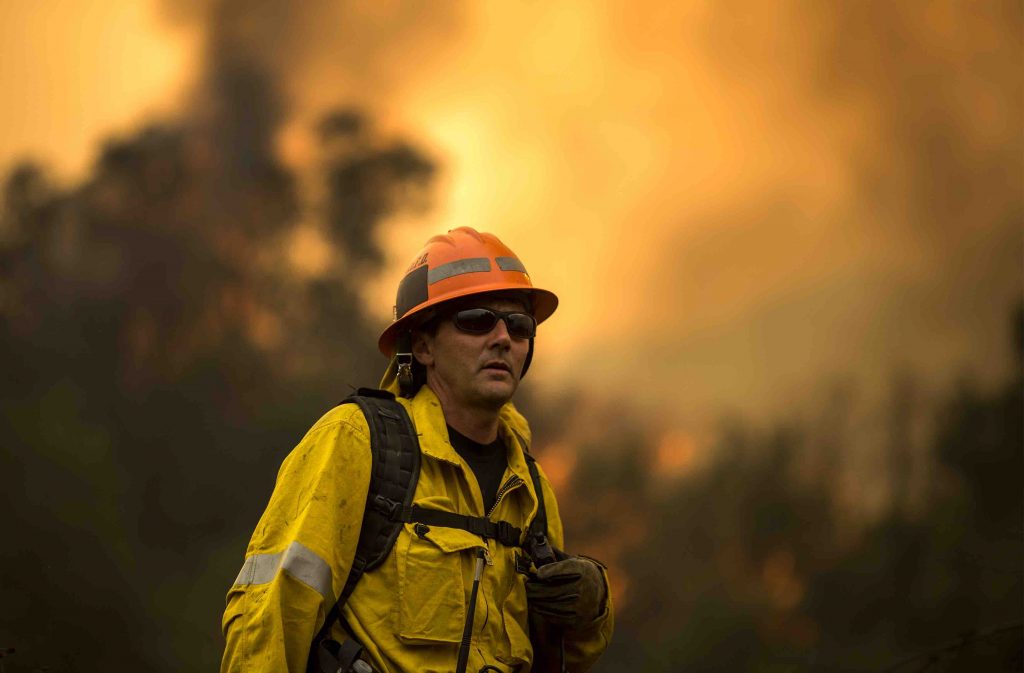As The Camp and Woolsey fires rage on in Northern and Southern California, respectively, federal officials have declared a public health emergency in the state. Firefighters – many of whom are inmates making $1 an hour – are putting their lives on the line battling the flames, but farmworkers are also in the way of danger. Despite the toxic smoke swirling around, farmworkers, who work outside, still have to show up for their jobs. Recently, an image credited to Andy Holzman, shows these men and women picking produce as the sky takes on an orange and dark blue hue. It’s served to remind people that while many are avoiding going outside, they have no choice.
“Unfortunately, when farmworkers can’t work due to the hazardous conditions, they lose income because they are often paid piece rate (by the box picked), and if they are undocumented are unable to qualify for federal disaster relief,” Lucas Zucker, of Central Coast Alliance United for a Sustainable Economy (CAUSE), tells Remezcla in a message.
The organization has distributed protective masks to Oxnard-area farmworkers since last year’s Thomas Fire when “the smoke was actually even worse as the fields were closer to the major agricultural area of Oxnard.” But it hasn’t distributed as many masks this time around, because of conflict with land owners. “[It’s] partly because growers have become increasingly hostile to volunteers entering their private property to distribute protective gear,” Zucker adds.
Last year, Zucker was kicked off a farm when he tried to give farm workers protective gear. The growers told him that they had provided masks to its workers, and that their employees chose not to wear them.
This time around, CAUSE saw a rise in farmworkers wearing protective masks, but “still too many without protection.” But as volunteers have had trouble accessing the farms, the organization is focused on other ways it can help these farmworkers. Zucker suggests calling Division of Occupational Safety and Health of California (CAL OSHA) and state legislators and demand better protection for these men and women.
CAUSE is also accepting help through 805 Undocufund, which raises money for undocumented workers who cannot receive federal assistance. Learn more here.




